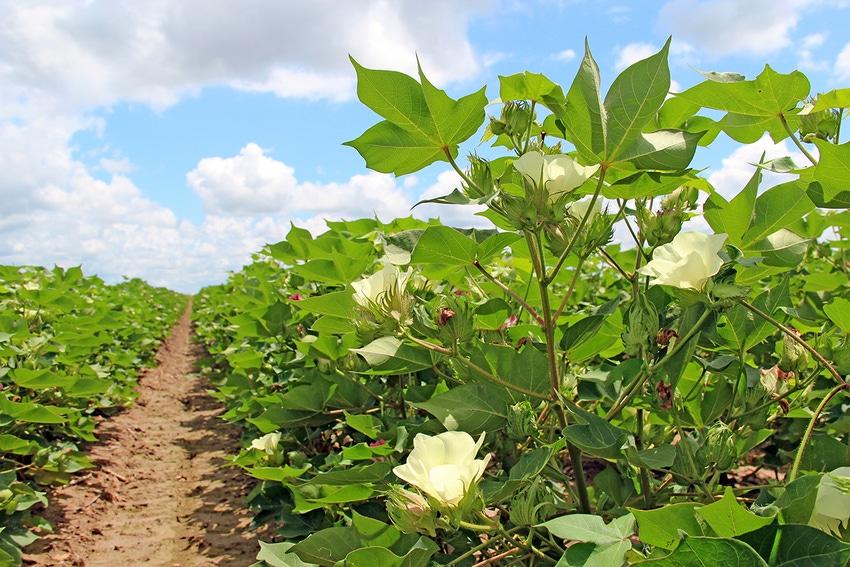
USDA issues deregulation decision on Enlist cotton trait
“The deregulation of Enlist cotton marks a tremendous milestone for the cotton industry,” says John Chase, Enlist commercial leader, Dow AgroSciences. “In the South, growers are all too familiar with the challenges created by resistant weeds. Enlist cotton will open the door to other options for in-season weed control with multiple modes of action.”
July 23, 2015

Just as weed specialists in Arkansas were confirming Palmer amaranth or pigweed is now resistant to another class of herbicides in their state, USDA issued a decision deregulating Dow AgroSciences’ Enlist cotton trait in the United States.
The decision took growers a step closer to having a new tool they can use to control glyphosate- and now PPO-inhibitor-resistant pigweeds in cotton. USDA previously deregulated the Enlist trait in corn and soybeans and the Roundup Ready Xtend trait in cotton and soybeans.
Farmers are now awaiting EPA registration of new formulations of the Roundup Ready Xtend herbicide and the Enlist Duo herbicide that can be applied over-the-top of cotton crops containing the Xtend and Enlist traits. Both Monsanto and Dow AgroSciences are expecting decisions on labels for the new herbicides in time for the 2016 season.
The Enlist cotton trait deregulated today provides tolerance to Enlist Duo herbicide – a proprietary blend of Dow AgroScience’s new 2,4-D choline and glyphosate -- as well as full tolerance to glufosinate. With three tolerances, Enlist cotton offers more weed control options in one convenient system.
Once registered by EPA for use on Enlist cotton, growers will be able to apply Enlist Duo herbicide on Enlist cotton from burndown up to mid-bloom, according to Dow AgroSciences representatives.
“The deregulation of Enlist cotton marks a tremendous milestone for the cotton industry,” says John Chase, Enlist commercial leader, Dow AgroSciences. “In the South, growers are all too familiar with the challenges created by resistant weeds. Enlist cotton will open the door to other options for in-season weed control with multiple modes of action.”
Chase says the new Colex-D Technology will provide near-zero volatility, minimized potential for physical drift, lower odor and better handling characteristics. This summer growers have been allowed to try out the new compound in research plots on their farms.
“Enlist Duo does not have the volatility that we’re used to seeing with old 2,4-D compounds,” says Mike Griffin, Virginia grower and research plot participant. “Volatility is beyond my control as an operator and for a company to have basically formulated a compound where volatility is not something I have to worry about, that’s probably my single most exciting factor about this.”
“We deal with glyphosate-resistant weeds and primarily glyphosate-resistant palmer pigweed in this geography,” says Trey Koger, a research plot participant who farms near Belzoni, Miss. “We fight that weed species in every one of our crops. There are a lot of benefits I see out of this technology in addition to the ability to control glyphosate-resistant Palmer pigweed.”
While EPA has approved Enlist Duo for use with Enlist corn and soybeans, the EPA is currently reviewing the use with Enlist cotton and registration for this use is pending.
Pending regulatory approvals, Dow AgroSciences expects to launch Enlist cotton in proven, consistent, high-yielding PhytoGen cottonseed in 2016.
To learn more about growers’ experiences with the Enlist system, visit Enlist.com, the Enlist YouTube channel or @EnlistOnline on Twitter.
About the Author(s)
You May Also Like





